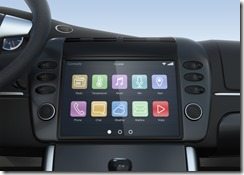Some drivers simply want a car that will sync with their smartphone while others want all the bells and whistles connected driving systems have to offer.
Even if you purchased a vehicle before this technology emerged or weren’t willing to fork over the dough for the added technology, aftermarket solutions are now available, thanks to manufacturers like Delphi. Through Microsoft’s Azure cloud-computing service, Delphi’s Connect grants drivers the same access to luxuries those with built-in connected driving systems enjoy.
Wondering if a connected driving system is right for you? Here are some important considerations:
Benefits
Useful Data at Your Fingertips
Connected cars have the ability to transmit real-time data about all of your vehicle’s components to your dashboard, including forthcoming mechanical issues so you can address the problem before it arises. And in the event you’re involved in an automobile collision, data regarding the actual crash and your location will automatically be sent over to the proper authorities.
Leave the Portable GPS at Home
No need to worry if you forget to bring TomTom or your smartphone along for the ride. The built-in GPS system has you covered. And you’ll also receive real-time traffic alerts so you can avoid those jam-packed routes. But should your GPS ever go offline or become inaccessible, you should already be familiar with the driving laws in your state and have a thorough knowledge of your city so you can make your way around without putting yourself at risk for receiving a traffic citation. Brush up on your skills at Driving-Tests.org.
Added Protections
Have you ever found yourself alone in a dark parking lot unsure of where your vehicle is located? With this technology, you can locate it remotely in a matter of minutes. And if you vehicle is ever stolen, a connected driving system will assist law enforcement with determining its whereabouts.
Drawbacks
Lawsuits Galore
You should be aware of a class-action lawsuit that was recently filed in Dallas, Texas, against Ford Motor Company, General Motor Company and Toyota. The lawsuit stated the following: these automotive giants “…failed to ensure the basic electronic security of their vehicles, anyone can hack into them… take control of the basic functions of the vehicle; and thereby endanger the safety of the driver and others…” reports Connected World. And although the validity of this lawsuit is yet to be determined, it may prompt you to dig a little deeper before deciding if a connected driving system is right for you.
Some drivers are also concerned about the privacy of their information. Reasoning? “…Telematics systems provide a regular stream about a car’s location and other parameters. And it’s not clear what data is collected and what is done with it. Even automakers don’t seem sure about the best ways to use it,” says Consumer Reports. And if manufacturer’s aren’t straight-forward about what’s happening with the data collected, it’s only natural to have reservations about the safety of your personal information.
A recent security breach of BMW’s unlocking feature also raised eyebrows when researchers were able to hack servers and send instructions to unlock the vehicles remotely, reports PC World. To rectify the issue, the auto manufacturers have sent out software patches to 2.2 million cars equipped with Connected Drive.
Distractions
As if smartphones weren’t already distracting enough, imagine how much more of your attention will be captivated by a connected driving system? “Cognitive psychologists have looked at this for years — the human brain cannot do more than one challenging activity at a time. It switches back and forth,” National Safety Council Expert, David Teater, told Automotive Digest. So while a bulk of these features are quite beneficial, they also place lives at risk if not used properly.
Bottom line: If you must use your connected driving system while on the road, pull over in a safe location to avoid putting your life at risk.


